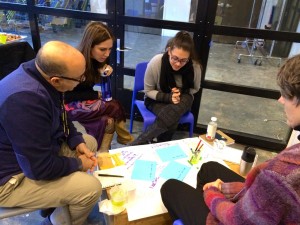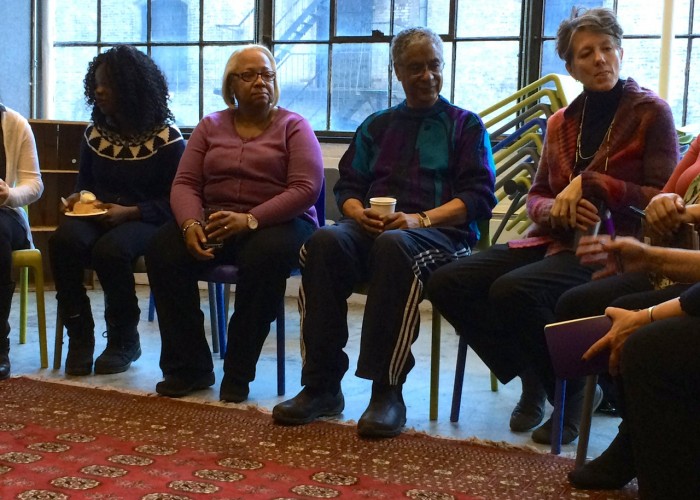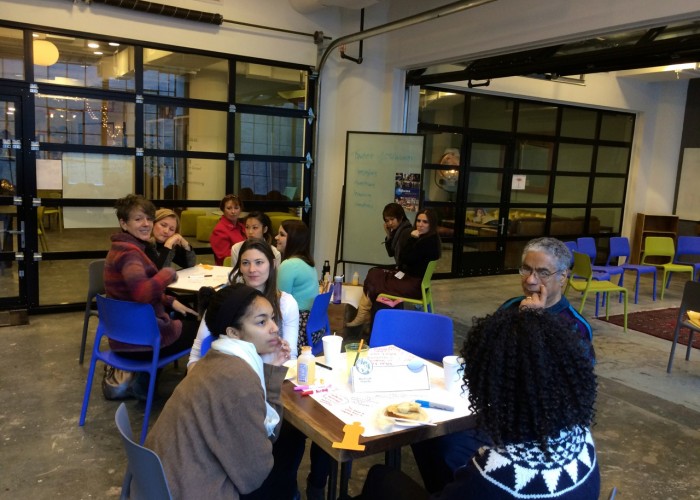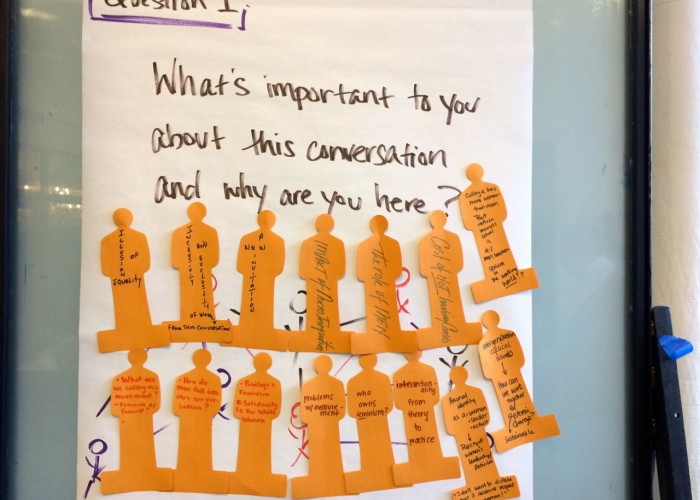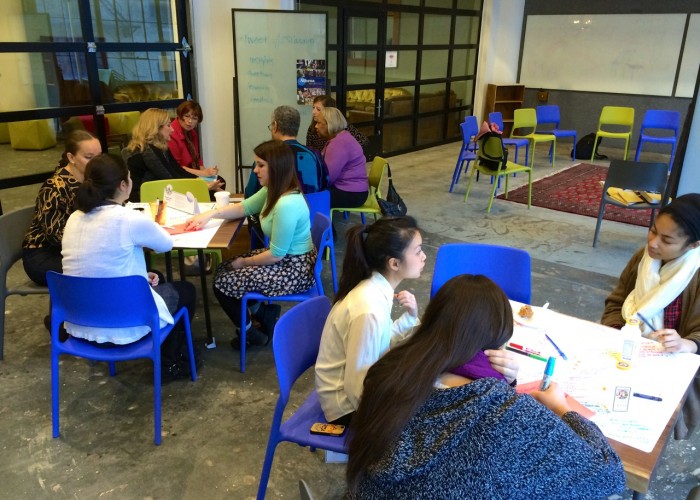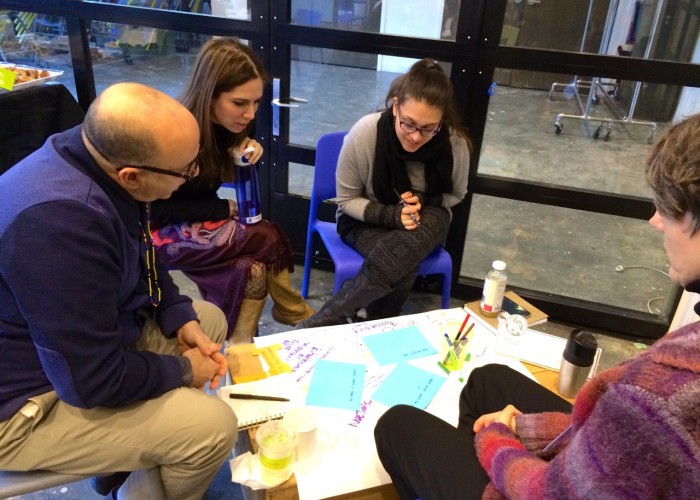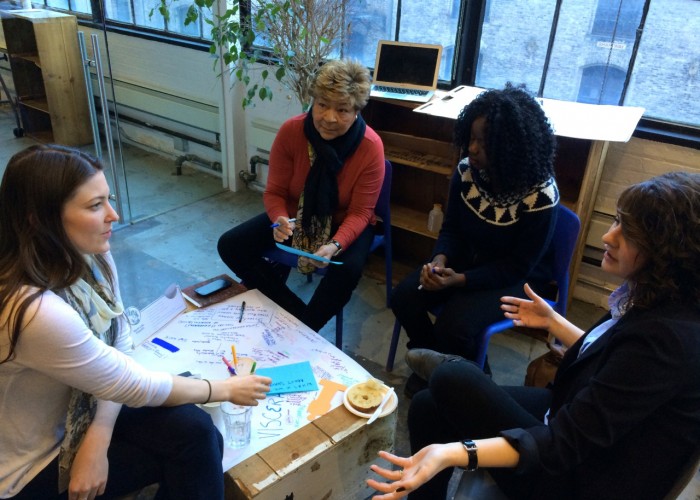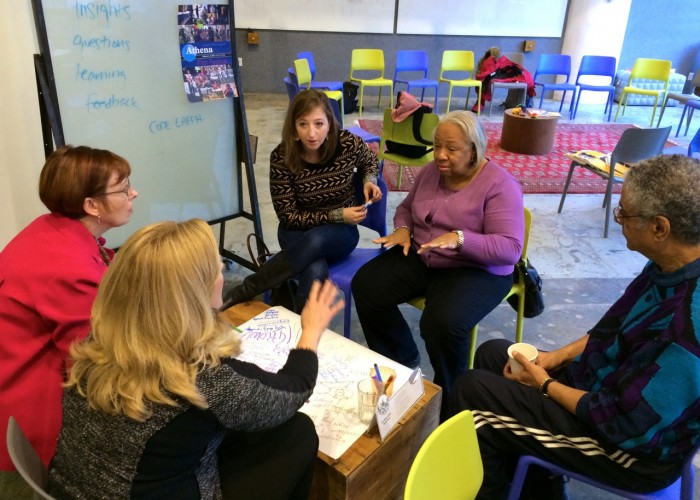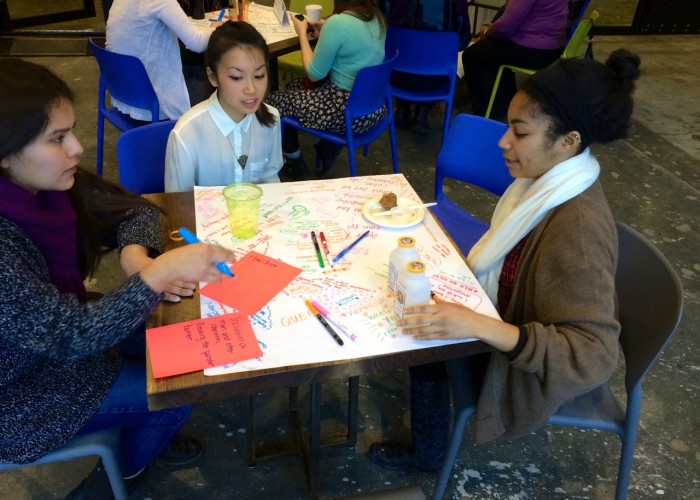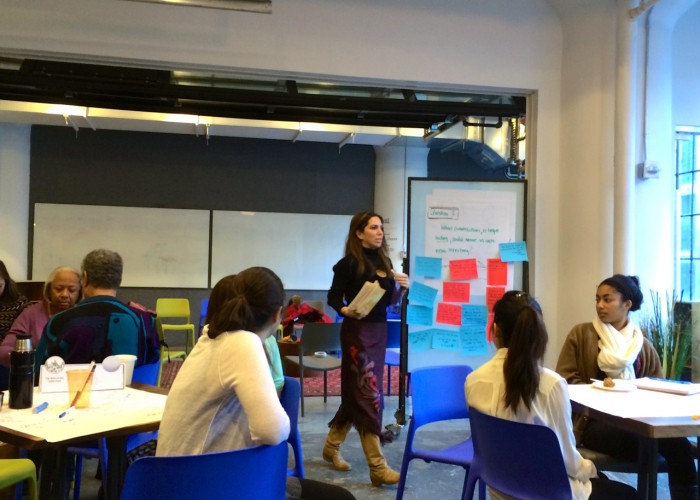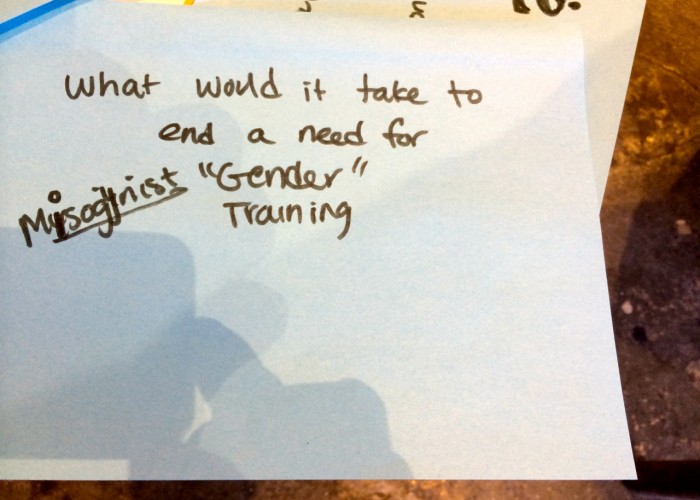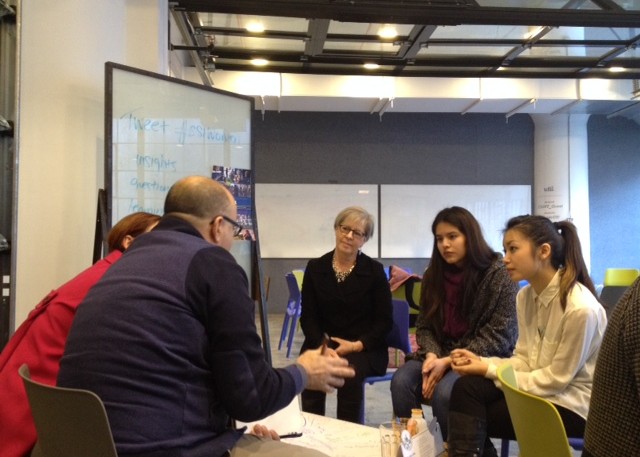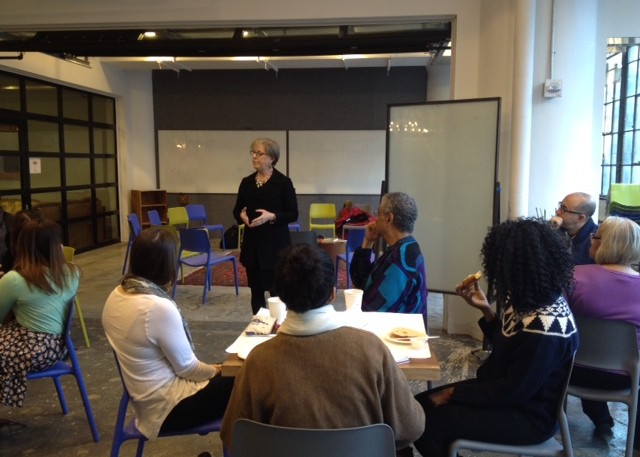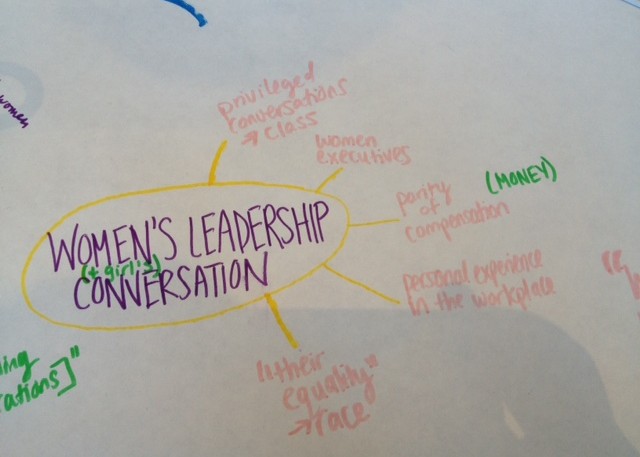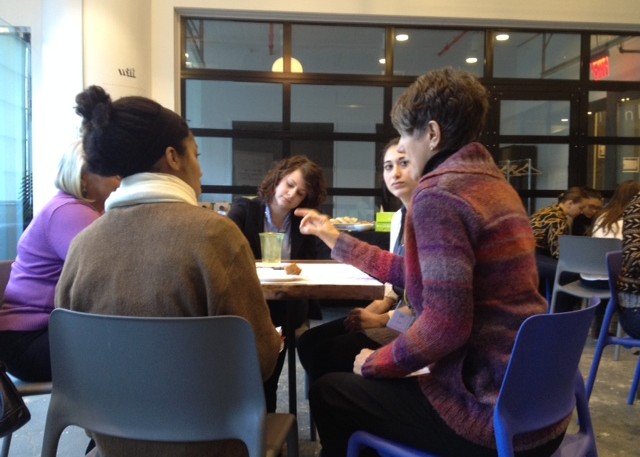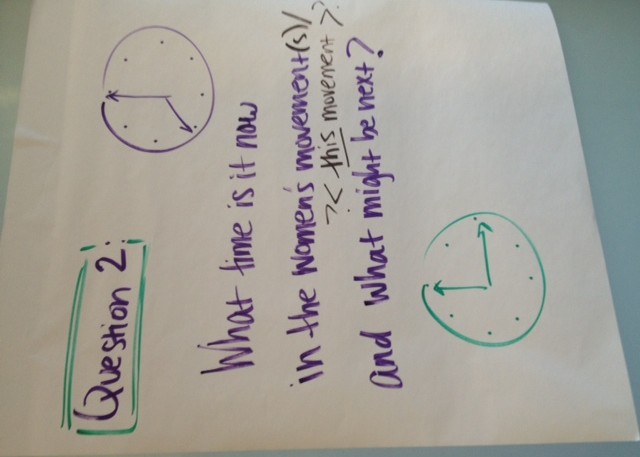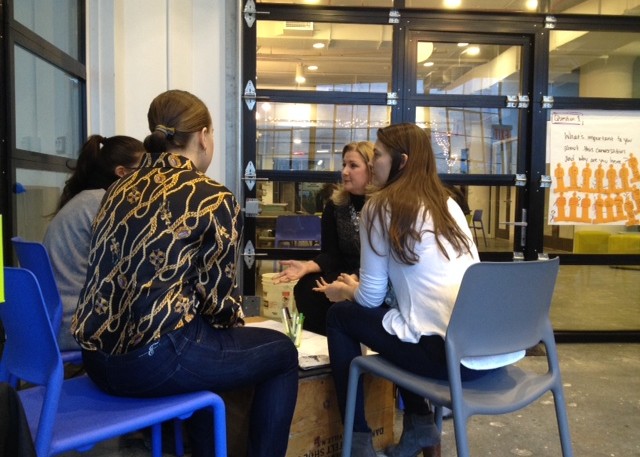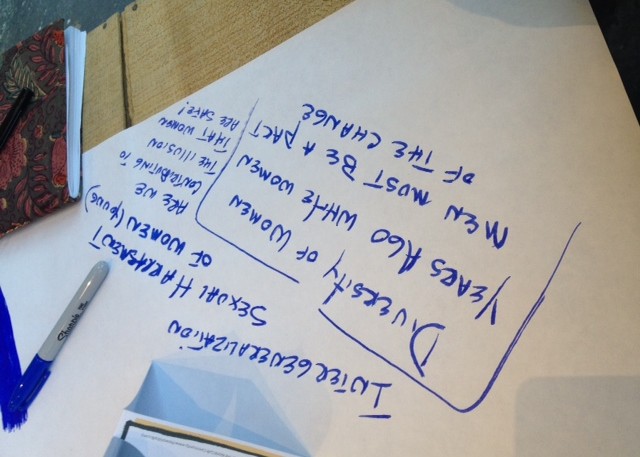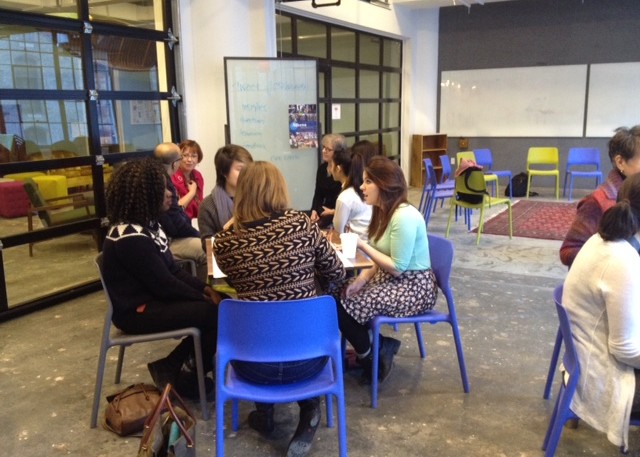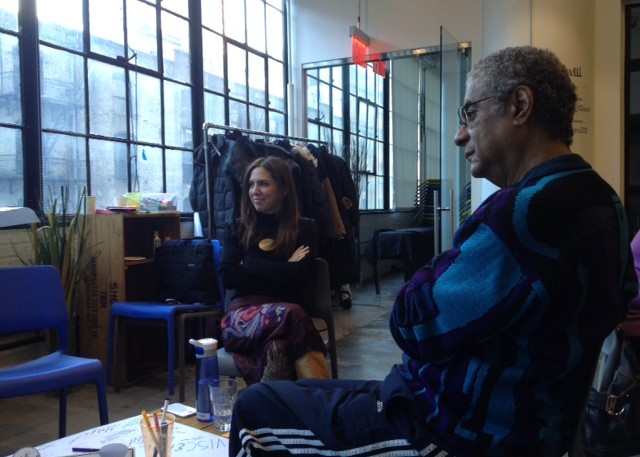Using World Café to Open Up the Conversation on Women, Activism, & Leadership
“Genuine questions–ones for which we don’t already have answers–are open invitations to innovation, calling forth ideas and insights that don’t yet exist.”
—Juanita Brown & David Issaacs, The World Café: Shaping Our Futures Through Conversations That Matter
On January 29th, I was delighted to co-host a World Café on Women, Activism, and Leadership at the Centre for Social Innovation in NYC with a fellow Art of Hosting practitioner, Nancy Fritsche Eagan, Allie Mahler from CSI, and Nathalie Molina Niño, co-founder of Entrepreneurs@Athena. Not a panel discussion and Q&A on women’s leadership, not a wide open discussion with no structure to contain all of the different ideas and opinions that would inevitably come up, but a World Café: a uniquely open/structured conversation designed to invite and allow for convergence, divergence, complexity, and new clarity/actions based on participatory leadership principles.
The conversation was driven by participants. As hosts, our job was to offer up a few questions to get things started. Participants in this World Café ranged from age 16 to 75. We had about 30 people total (2 men) from a wide range of backgrounds and identities. Who was there? Mostly folks who heard about the event through CSI, the NYC Art of Hosting community of practice, Take The Lead, and social media. Check out the “harvest”/results of this conversation and some photos below. Stay tuned for future gatherings this winter and spring!
On the topic(s) of women, activism, and leadership, we hosted three rounds of conversation (15-20 min each) and asked the following:
- What’s important to you about this conversation and why are you here?
- What time is it now in the women’s movement and what might be next?
- What conversation, if begun today, could move us into new territory?
In response to question #1, we heard this:
College has more women than men, but ratio in business school is 4 to 1 (men to women). Sexism in working world?
Inclusivity and exclusivity of women from this conversation
Illusion of equality
Cost of not having this conversation
The role of men
Impact of microinequities
A new invitation
Intersectionality: from theory to practice
Personal identity as woman, activist, leader
Duality of women’s leadership/activism
“I don’t want to have to dictate that I deserve respect as a woman”
What are we calling this movement (feminine or feminist)?
How do men fall into this conversation?
Problems with measurement?
Who owns feminism?
Cyclical issues across generations
How can we work together for sustainable, systemic change?
Privilege and feminism #solidarityisforwhitewomen
Rather than “harvest” question 2, we let those conversations lay the foundation for question 3. And in response to question 3, we heard the following:
Inclusion of men and other identities
Breaking the gender barrier
How do we break the gender barrier
How do we facilitate more intergenerational conversations around feminism?
How do invite all persons to define feminism?
How might we broaden our abilities to connect self, other, community for meaningful systemic change?
To what extent should we use pre-existing power structures to affect change or do we challenge from outside? (strategy)
How do we define terms that are ever changing (i.e. beauty, feminism, leader) in order to move towards our goal of solidarity?
How do we educate young girls to be leaders and how do we ensure women who are leaders support women?
We need a “recognition movement” (a movement of recognition) – a shared language on domestic violence and sexual harassment
Slut-shaming
Open up the conversation with men
What more would be possible if we focused less on labels and more on relevance?
What would it take to end a need for misogynist gender training?
What would it be like if we were all in our full power?
Why is feminism a dirty word? What do we need to do to change this?
What are we talking about when we talk about feminism and leadership? (the invitation matters)
Time for mixed gender conversation on sexual harassment
Mothers and sons as a path to change
We’ll be using all of these ideas and questions to design future gatherings related to women, activism, and leadership. Check out some photos from this last World Café below, and please share your responses to the questions above in the comments. If you participated January 29th, we’d love to hear your thoughts.
What, if any, next steps to advance the rights/leadership/well-being of of women and girls (or on some other issue you care about) will you be taking in your organization or community? What steps are you taking already?
Tweeting about this event? Please search and use the hashtag #csiwomen.

